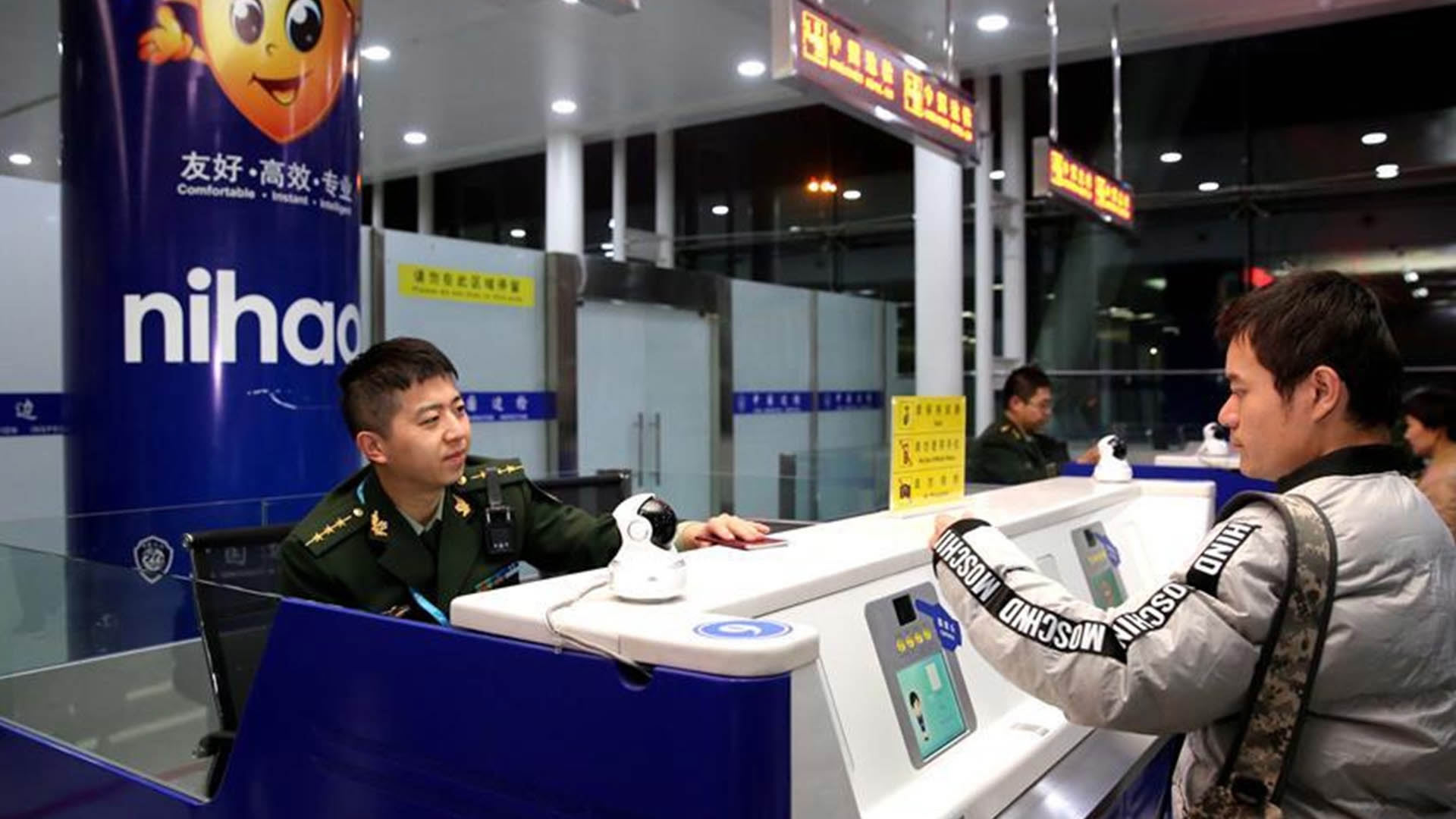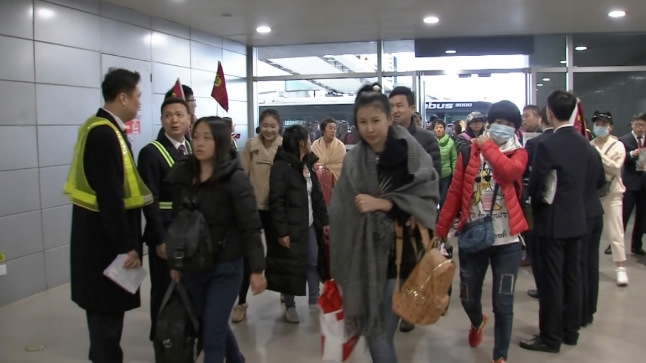
China
15:30, 01-Dec-2017
Stranded Chinese tourists come home from Bali
CGTN's Yang Chengxi

Tourists who stepped out of China Eastern Airline’s flight MU5030 on Thursday never would have thought that their vacations in Bali would end in evacuations. Mount Agung has been blowing ash high into the atmosphere for days, forcing the closure of the Ngurah Rai International Airport on the resort island on Monday. At 3:00 p.m. on Wednesday, authorities reopened the airport for a 16-hour window.
As of 5:00 PM Friday, 10,639 tourists have returned to China. Three domestic airlines – China Eastern, China southern and Xiamen airlines – sent 14 planes to take back 3,108 stranded tourists. Foreign airlines also sent 43 planes. In the evening, Chinese and foreign airlines will also send 10 more planes to assist 2,372 stranded tourists back to China, bringing the total number of evacuated tourists to 13,011.

Passengers of MU5030 arrive at Pudong International Airport in Shanghai. /CGTN Photo
Passengers of MU5030 arrive at Pudong International Airport in Shanghai. /CGTN Photo
"Because of the volcanic eruption, we made extensive preparations for different scenarios as we flew there. None of us are experienced in this kind of situation," said Yao Yiyang, air captain of flight MU5030.
Their mission was to bring back the Chinese tourists stranded there. The planes fly back from Bali to Beijing, Shanghai, Shenzhen and Guangzhou. By Friday, nearly 2,000 people have been evacuated. “Most of the passengers on board are tourists from tour groups, they are physically very well and are quite happy to see us," said Huang Lei, a member of the cabin crew of China Southern Airlines.
Tourists who were stranded the longest got to board first. Senior citizens and children were also prioritized. "We were quite concerned because we ran out of medicine. Most of us seniors are on medication for heart disease and high blood pressure, etc.," said one tourist back from Bali.

Chinese tourists get information from Consulate-General of China at the Ngurah Rai Airport in Denpasar, Bali, Indonesia, Nov, 30. 2017. Two major Chinese state-owned carriers on Wednesday night sent flights to fetch more than 2,700 Chinese tourists stranded in Bali, Indonesia, after a volcano eruption. /Xinhua Photo
Chinese tourists get information from Consulate-General of China at the Ngurah Rai Airport in Denpasar, Bali, Indonesia, Nov, 30. 2017. Two major Chinese state-owned carriers on Wednesday night sent flights to fetch more than 2,700 Chinese tourists stranded in Bali, Indonesia, after a volcano eruption. /Xinhua Photo
Bali is a popular resort. Over one million Chinese tourists visited the island in January to August of 2017. Most of the evacuees said they didn't feel the effects of the volcano. Many were eager to come back.
“Some members of our tour group couldn't wait and they left by car. Now the hotels in Bali are much emptier than before and there aren't many people on the beaches," said another tourist.
Most tourists said they were happy that the evacuation was handled quickly. "What is there to fear? We have our country at our back. The embassy and the airlines sorted out everything," said one tourist.
Officials estimate that the volcano eruption will last for two to three days, and it might take another three days to have the Bali airport back to normal operation.
(CGTN's Duan Fengyuan also contributed to this reporting.)

SITEMAP
Copyright © 2018 CGTN. Beijing ICP prepared NO.16065310-3
Copyright © 2018 CGTN. Beijing ICP prepared NO.16065310-3